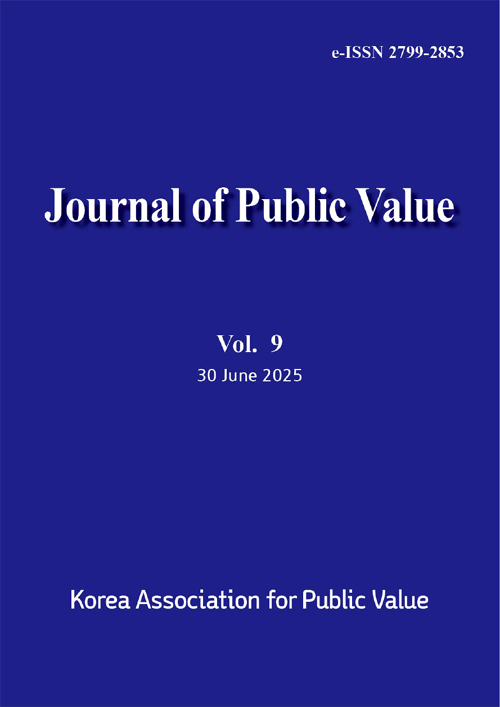학술논문
Remembering our Dead: The Practice of Death Veneration in the Philippines and South Korea
이용수 3
- 영문명
- 발행기관
- 한국공공가치학회
- 저자명
- Marvin Tenecio Raniel Billones
- 간행물 정보
- 『Journal of Public Value』Vol. 9, 121~134쪽, 전체 14쪽
- 주제분류
- 사회과학 > 사회복지학
- 파일형태
- 발행일자
- 2025.06.30

국문 초록
Purpose: Ancestor worship is practiced in societies with varying levels of socioeconomic, ideological, and technical complexity, which is nevertheless a fundamental component of many contemporary religious traditions. Using the composition of loob by Alejo, this paper examines the various similarities and differences on how Filipinos and Koreans practice their ancestral traditions by analyzing the parallels between undas and jesa, rites held in the Philippines and South Korea, respectively, as remembrance of departed family members or ancestors. The researchers also explore both cultures' practices/beliefs, considering Animistic, Christian, and Confucian traditions that substantially impact the everyday lives of Korean and Filipino families.
Method: This research project used a qualitative approach consisting of literature review. The results of this study should be supplemented by qualitative studies in the future. The literature review consists of a comprehensive assessment of scholarly academic publications from competing perspectives in the fields of religion, philosophy, and cultural studies, with a focus on Christian and Confucian philosophy on life, death, and the afterlife as well as religious practices related to funeral ceremonies.
Results: The research identifies the similarities and differences between the Philippines and South Korea in terms of death veneration. Social community, food, and family are highly valued in both nations. There might be certain connections between the cultures and histories of Korea and the Philippines, but there may also be a great deal of variations, particularly when it comes to geography, language, religion, food, history, education, and beliefs. Nevertheless, Korea and the Philippines are distinct nations with their own cultures, customs, and history despite their shared similarities and disparities.
Conclusion: This article discusses similarities and differences in how Filipinos and Koreans practice these ancestral rites and investigate the practices/beliefs of both nations that significantly affect the daily lives of Korean and Filipino families. Ancestral worshiping in South Korea is considered enlightenment practice by Confucians with no religious involvement. Mourning and other related ceremonial activities, which were seen to be little more than the manifestation of human emotions and sentiments, fostered the qualities of filial piety, fidelity, and unconditional love while also expressing respect and respect for the person who died. Filipino Christians, on the other hand, believe in the bible. According to their scripture, the dead people's spirits do not stay in the physical realm. However, they either go to God's promise or hell. The idea that spirits linger on earth after death and impact on believer's lives is not supported in such scripture.
영문 초록
목차
1. Introduction
2. Composition of Loob by Alejo
3. Death Veneration Practices
4. Discussion and Results
5. The Influence of Dead Veneration Practices on Korean and Filipino Families' Daily Lives
6. Application of Loob-Kapwa in Korean and Filipino Death Practices
7. The Convergence and Divergence between Undas and Jesa
8. Conclusion
9. References
해당간행물 수록 논문
참고문헌
최근 이용한 논문
교보eBook 첫 방문을 환영 합니다!

신규가입 혜택 지급이 완료 되었습니다.
바로 사용 가능한 교보e캐시 1,000원 (유효기간 7일)
지금 바로 교보eBook의 다양한 콘텐츠를 이용해 보세요!


